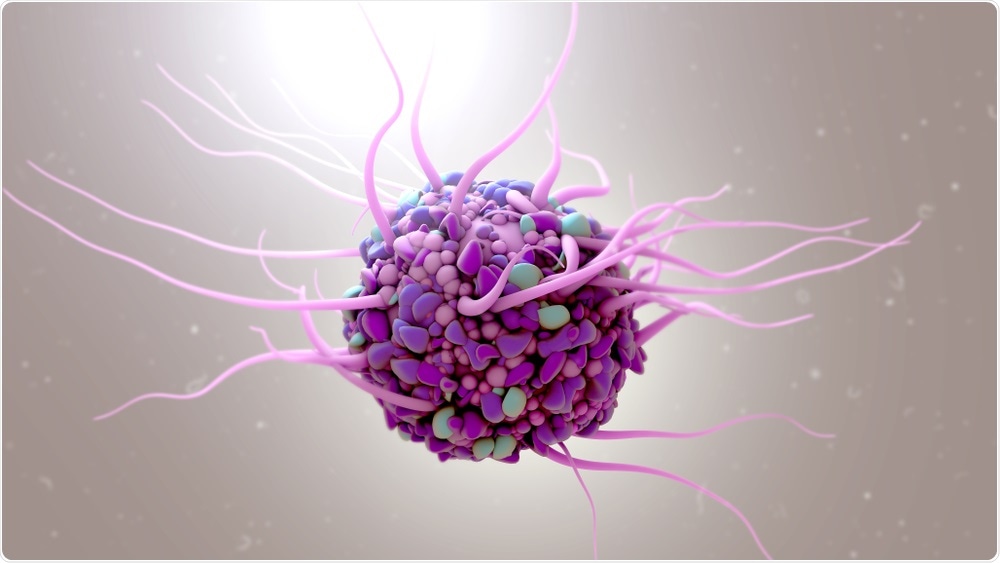Mount Sinai researchers have discovered a pathway that regulates special immune system cells in lung cancer tumors, suppressing them and allowing tumors to grow.
The scientists also figured out how to interrupt this pathway and ramp up the immune system to prevent tumor formation or growth, offering a potential boost to immunotherapy, according to a study published in Nature in March.

Image Credit: Design_Cells/Shutterstock.com
Researchers analyzed human and mouse lung cancer lesions, specifically studying the highly specialized immune cells called dendritic cells, which are considered the generals of the immune system. Dendritic cells give other immune system cells, called T-cells, identifying information from tumors so the T-cells can recognize and fight cancer. The certain genetic material in the tumors, however, tamps down the dendritic cells' function via this newly discovered immune regulatory pathway.
Scientists performed high-tech, single-cell sequencing and high-definition imaging on the mouse and human tumors to study the dendritic cells' activity in lung cancer and adjacent noncancerous lung tissues.
They identified a molecular pathway that dampens dendritic cells' ability to program T-cells to kill. This study also showed that reversing this pathway significantly improves tumor responses in animals.
Based on the findings, scientists are designing a clinical trial that they expect will enhance patients' response to an immunotherapy called checkpoint blockade, by adding a second therapy that blocks the immune regulatory pathway that decreases dendritic cells' function in tumors. Right now only about 20 percent of patients respond to checkpoint blockade therapies. The trial will be done in collaboration with Regeneron Inc.
"This study highlights the power of single-cell technologies to identify new therapeutic targets in cancer," said senior author Miriam Merad, MD, Ph.D., Director of the Precision Immunology Institute and Mount Sinai Professor in Cancer Immunology at the Icahn School of Medicine at Mount Sinai, Co-leader of the Cancer Immunology Program at The Tisch Cancer Institute at Mount Sinai, and Director of the Mount Sinai Human Immune Monitoring Center.